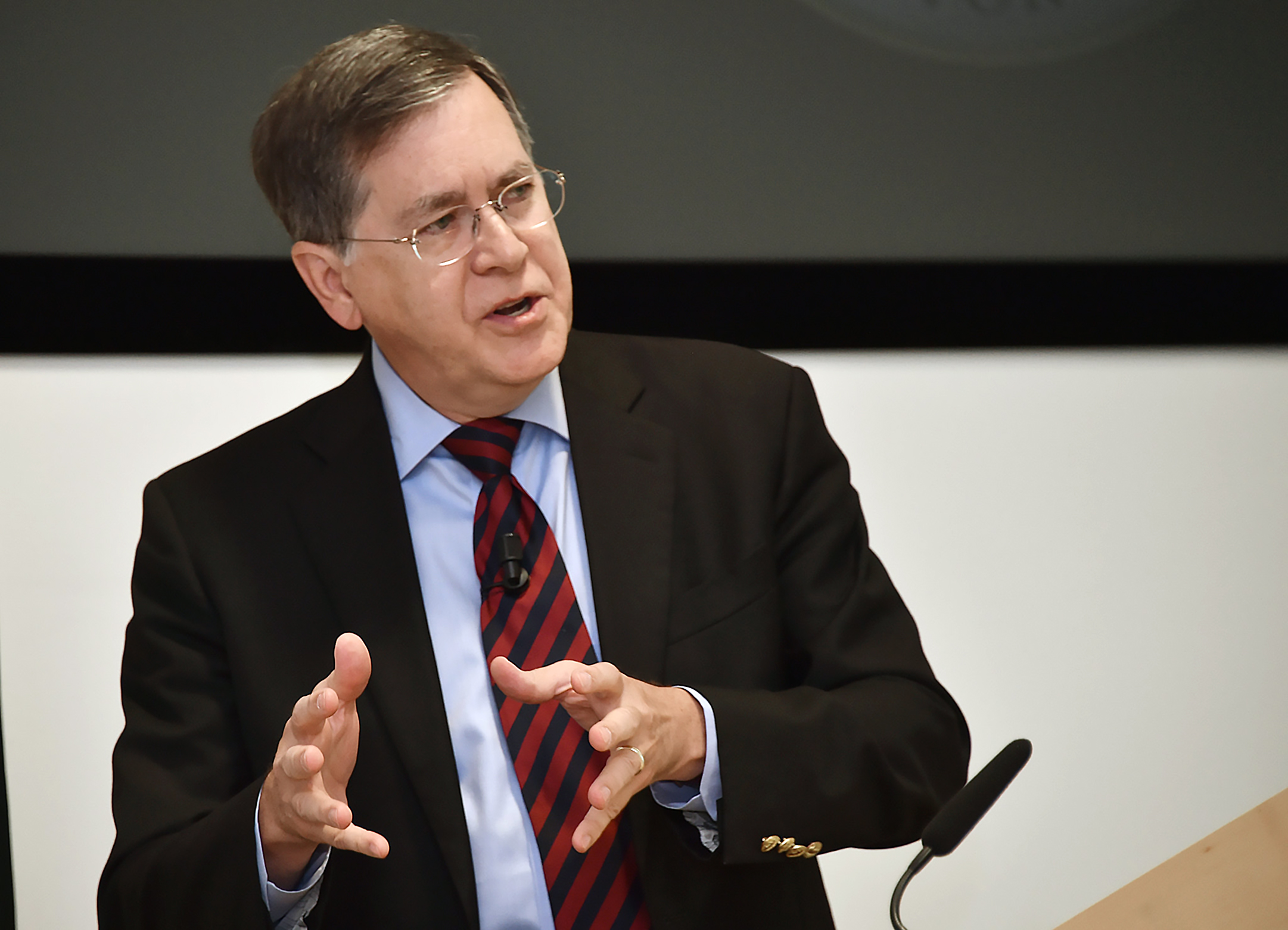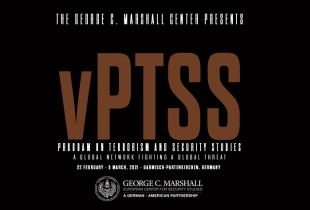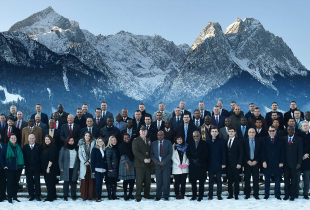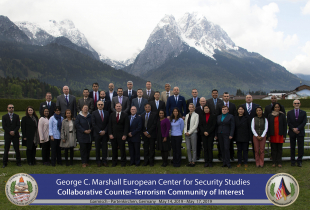
Marshall Center's Counterterrorism Program Starts Today
By Christine June
Public Affairs Program
George C. Marshall European Center for Security Studies
GARMISCH-PARTENKIRCHEN, Germany (July 9, 2015) – The Program on Terrorism and Security Studies starts today, July 9, at the George C. Marshall European Center for Security Studies here.
The PTSS course addresses numerous aspects of a threat that confronts nations around the globe. The four-week course is designed for government officials, military officers and police administrators currently working in mid- and upper- level management positions of counterterrorism organizations throughout the world.
The keynote speaker for the first day is Ambassador David M. Satterfield, director General of the Multinational Force and Observers.

Satterfield is a retired career Senior Foreign Service Officer of the United States, a career begun in 1980. His last position before this appointment was as Coordinator for Iraq and Senior Advisor to the Secretary of State. Prior to that, he served as U.S. Deputy Chief of Mission in Iraq, Principal Deputy Assistant Secretary of State for Near Eastern Affairs, and U.S. Ambassador to Lebanon.
His Middle Eastern experience spans thirty years and also includes assignments in Syria, Tunisia, Saudi Arabia and two tours in Lebanon. Ambassador Satterfield served as Director of Arab and Arab-Israeli Affairs in the Department of State and as Director for Near Eastern Affairs on the National Security Council Staff from 1993 to 1998, where he worked primarily on the Arab-Israeli peace process. His languages include Arabic and French.
Today, the participants – 75 from 51 countries – are studying What is Terrorism: Definitions and Terms from Professor Jim Howcroft, PTSS course director. They will also receive welcoming remarks from Ben Reed, Marshall Center U.S. deputy director, and alumni briefing.
Participants hail from: Afghanistan; Albania; Armenia; Bangladesh; Belize; Bosnia and Herzegovina; Botswana; Cameroon; Costa Rica; Croatia; Czech Republic; Dominican Republic; Egypt; Estonia; Georgia; Germany; Greece; Hungary; Ireland; Italy; Kenya; Kosovo; Kyrgyzstan; Latvia; Macedonia; Malaysia; Mali; Malta; Mauritania; Mauritius; Moldova; Morocco; Nigeria; Pakistan; Peru; Philippines; Poland; Romania; Rwanda; Senegal; Serbia; Sierra Leone; South Africa; South Korea; Tanzania; Thailand; Togo; Tunisia; Uganda; United States; and, Uzbekistan.
The mission of the Marshall Center, as a vital instrument of German-American cooperation, is to create a more stable security environment by advancing democratic institutions and relationships; promoting active, peaceful, whole-of-government approaches to address transnational and regional security challenges; and creating and enhancing enduring partnerships worldwide.


